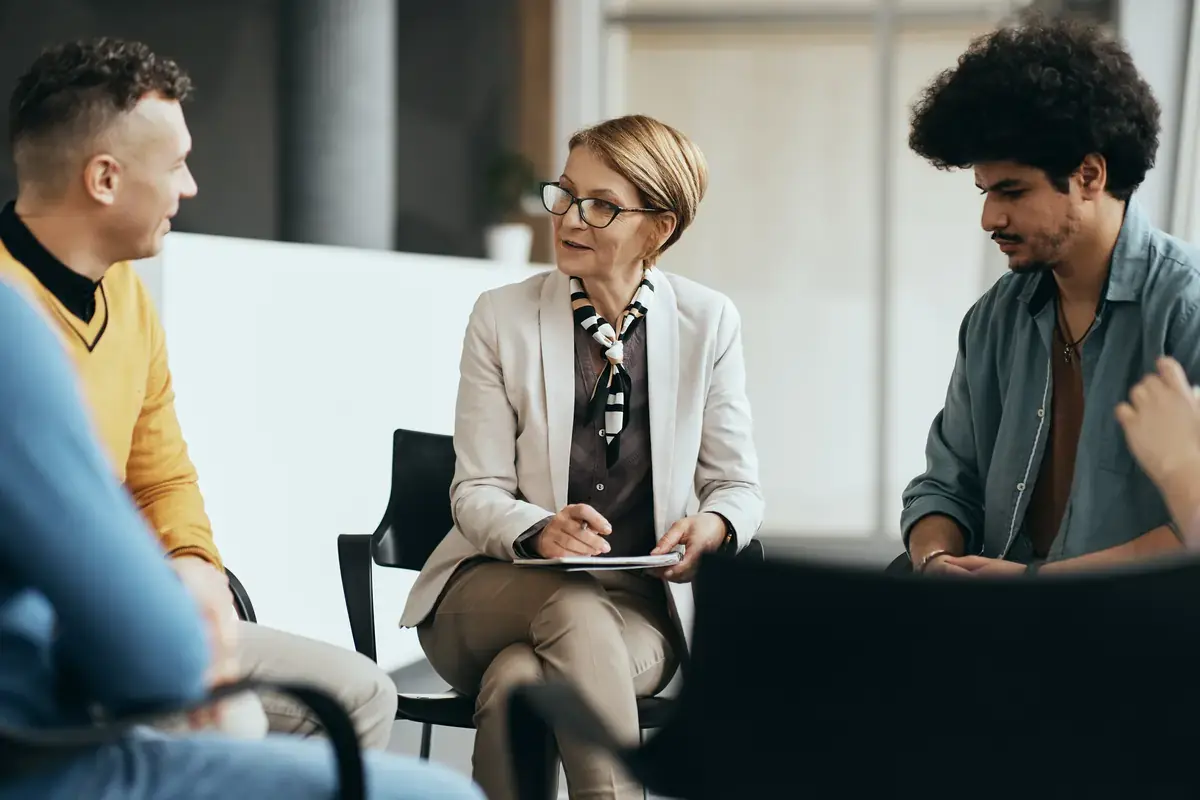How to Express Romantic Love: Effective and Heartfelt Gestures
All the world celebrates romantic love, and people from all walks of life look for ordinary moments and extraordinary ones to express love to their...
3 min read
![]() Williamsburg Therapy Group
:
Oct 27, 2023 4:22:02 PM
Williamsburg Therapy Group
:
Oct 27, 2023 4:22:02 PM

Confidence is often portrayed as an intrinsic property of someone's mind. In fiction, the main character has an unflappable confidence that is only challenged in the face of abject horror and difficulty.
In the real world, however, we know that this is not the case. Confidence is as much an emotion as happiness or sadness. Throughout even just a single day, one's confidence can fluctuate, ebbing and flowing as a result of a lunch meeting, a successful game of bowling, or a fight with one's spouse.
This mischaracterization of confidence is often at the core of why some people lack confidence consistently. To have confidence is to believe that you can be confident. In a sort of negative feedback loop, someone with low confidence may remain with low confidence until an external force, like therapy or a life transition, comes into effect.
Another misconception about confidence is that it's a social mechanism. This is untrue, since we know that confidence must come from within.
Of course, being social animals, human psychology is often easier and faster to address and change when analyzed in the context of others. This is why group therapy is a very common recommendation from therapists all over the country.
Yes, confidence comes from within. But sometimes, you need an external source of communication in order to demonstrate that.
In this article, we're going to explore how Austin residents can use group therapy to help them gain intrinsic, sustained confidence using clinical means.
The first step in any mental health journey is to get the advice of a licensed professional.
Articles can be great sources of information, but they cannot diagnose any particular condition or even offer true medical advice. Only a licensed therapist or psychologist can do that.
There are dozens of excellent therapists all over Austin. Here are some tips for finding the right one for you:
Once you find a therapist that works for you and have attended your first few sessions, it's time to start digging into why you may be lacking the confidence that you deserve to have.
Note again that this article is not a substitute for true medical advice. Below are some common reasons people lack confidence, which you and your therapist may end up talking about.
Low self-esteem can be caused by any number of things, from childhood factors to adulthood trauma. If you have a poor self-image, it's very difficult to approach any situation with a semblance of confidence.
Even if you have a decent sense of self-esteem, and understand your many good qualities, you can still feel undeserving of confidence. Sometimes this comes from guilt over a past transgression or a general sense that other's deserve more than you do.
Sometimes, people are totally confident from an intrinsic standpoint - that is, they are internally self-assured - but they fail to exude that sense externally due to social anxiety.
Regardless of what may be behind your lack of confidence, you and your therapist will be able to determine what steps you can take in order to start making progress on it.
Individual therapy is an extremely effective way to boost your confidence. However, your therapist may also recommend some other treatments, including group therapy.
Chances are, your therapist will have a few recommendations for group therapy sessions in Austin you can join. You should consider these recommendations seriously, as well as the following aspects that contribute to a successful group therapy experience:
If you're ready to start your group therapy journey, you can start right here.
Williamsburg Therapy Group is one of Austin's premier collectives of doctoral-level therapists. With unparalleled levels of expertise in Austin group therapy needs and techniques, our doctors are ready to help.
Give us a call, and our dedicated patient coordinator will be ready to help you find the right Austin group for you.

All the world celebrates romantic love, and people from all walks of life look for ordinary moments and extraordinary ones to express love to their...

What is relationship burnout or relationship fatigue? Many of us have heard of burnout, but we often connect it to professional life and the problems...

In today's digital age, so many of us are locked into our mobile devices each and every day, which can have a negative impact on our mental...